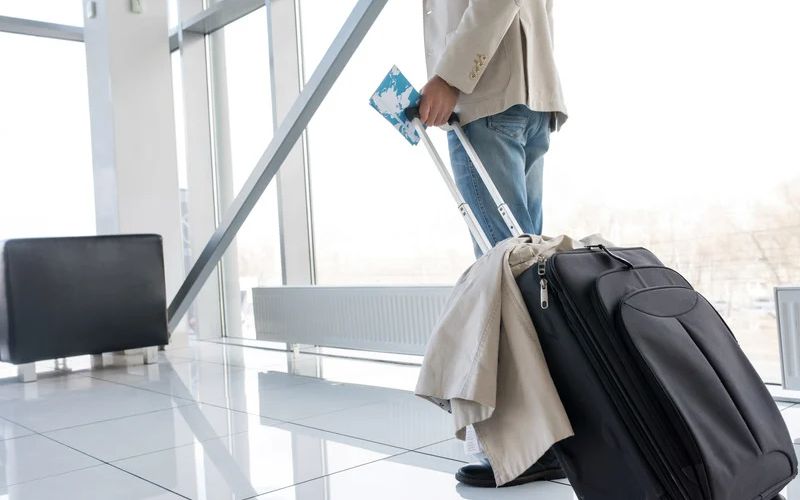original article: Lauren Saccone February 26, 2023 Senior Travel, Travel Tips
Traveling can be a truly remarkable experience. It can open your eyes to new experiences and allow you to explore things you’ve only imagined in your wildest dreams.
But, it’s not all fun and exploration. There’s a darker side to travel, particularly for senior citizens. Seniors are often the target of travel scams, with unscrupulous scammers aiming to take their money, ruining their vacation in the process. Luckily, there are ways to protect yourself no matter where your adventures may take you. Here’s a list of some common senior travel scams to avoid when you travel.
Fake Taxis
For many seniors, mobility is a concern. So it makes sense that you might turn to cabs to get around, particularly if your hotel isn’t close to the places you want to explore. The problem arises when it’s time to call a cab. Scammers will often try to pick up tourists and then demand ridiculous fees for subpar service. This can be doubly dangerous if you’re unfamiliar with the area. When in doubt, use verified taxis or rideshare services. Most airports and major travel hubs have taxi stands to ensure the people driving you are legit.
Free Gifts
It’s hard to resist the offer of something free, a habit which scammers take full advantage of. In many European cities, scammers will offer tourists a “free” piece of jewelry or a small souvenir. Once the unsuspecting target has accepted the trinket, the scammer immediately starts demanding money. If the target refuses, the scammer will often cause an enormous scene until they receive payment. The solution to this one is simple: don’t accept gifts from strangers. And remember that if it sounds too good to be true, then it probably is.
Pretend Tour Guides
Travel is costly, and cutting corners to save some extra cash is always tempting. Unfortunately, that’s where scammers come in. At many international locations — particularly popular tourist attractions — so-called ‘tour guides’ will offer deep discounts to take you around. Usually, the unlucky targets of this move end up with empty wallets and nothing to show for it. Play it safe and only use official, approved tours when exploring parts unknown.
Law Enforcement Impersonators
Another example of senior travel scams is the impersonation of law enforcers. These scammers prey on your natural instinct to obey police officers. Traditionally, scammers will approach you in uniforms and demand to see your travel papers. Sometimes they will go through your wallet and sneak out some money, returning it to the unknowing target. Other times, the “officers” will claim you’ve violated some sort of law and demand that you pay a fine. While less common than others, this scam is popping up more and more frequently, particularly in bigger cities. If you find yourself in this sort of situation, remain calm. Insist on seeing proper ID, and don’t hand over any papers or information until you’ve determined that you’re speaking to real law-enforcement authorities.
Free Trips
One of the most common scams is the offer of a free trip. Essentially, it’s a call, text, or email that claims you’re the winner of a free trip. To redeem it, you’ll have to share your personal and financial information, which can leave you vulnerable to everything from identify theft to credit card fraud.
Here are some red flags that your jackpot message is a scam. The message says that you won a contest or drawing that you never entered. Or it might make vague promises about “all-inclusive resorts” without any details. One really big sign that something’s not right is when they require you to pay a “deposit” to hold on to your reservation. Traveler beware.
Fake Timeshares
Timeshare scams can range from the simple to the sophisticated. The most basic ones are flat-out fake. The properties don’t exist, or the scammers don’t really own them, so they take your money and run. More complex timeshare scams tend to involve real companies and real properties, but their goal is to take as much money as possible from you. They might use misleading advertising to lure you in and a non-refundable, non-transferable contract to trap you. Before you sign on the dotted line for a timeshare, take it to a legal professional and make sure that it’s legitimate.
Pickpocketing Schemes
Pickpocketing is a real problem in many large, tourist-filled cities around the world. Pickpockets have refined their techniques to be highly effective. Some even work in teams! One of their most common tactics is to cause a distraction, which could be everything from a staged car accident to a musical performance, a marriage proposal, or some other kind of public display. Their goal is to fix your attention on something so that you don’t notice someone is going through your pockets.
Another common pickpocketing trick is to force physical contact with you. They might bump into you or jostle you on a crowded train. Or they might act like they need help crossing the street or loading something into their vehicle. You can thwart them with anti-pickpocketing measures like keeping your valuables in zipped-up pockets or safely secreted in a travel belt.
Juice Jacking
Juice hacking is a tech-based scam in which attackers can steal all of the personal information on your phone. It happens most often through those free USB ports you’ll often see in airports, taxis, shopping malls, and other public places or customer service areas. While the ports themselves are usually benign, criminals can upload malicious software onto these public USB charging stations. The software is programmed to steal your personal data, which the attackers can then use for a variety of nefarious purposes. The easiest way to prevent juice hacking is to travel with your own charger, or to bring along a portable charge or external battery.
The Hotel Switch
The hotel switch, as the name implies, is a bait and switch tactic. It usually starts with a local or someone posing as a local. They’ll ask where you’re staying, warn you that it’s no good, and promise to take you somewhere better. They might also tell you that your destination has been closed, and that you shouldn’t worry because they know somewhere else that you can go.
These people are usually getting paid to take you to a certain hotel. In the most extreme cases, they can be arranging a robbery by getting you to a secluded place. You should also be aware of this scam when taking advice from drivers, hotel clerks, valets, and aggressively “helpful” people at airports and other travel hot spots.







